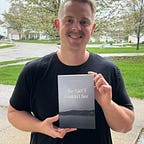How to Overcome the Battle of a Challenged Identity
We are what we do and we do what we are. It’s as simple as that.
5 min readMar 8, 2021
In a Tedx Talk presented in 2016, former Utah State University goalkeeper Jeannie Woller discussed the physical and mental toll she took after walking off the field for the final time.
